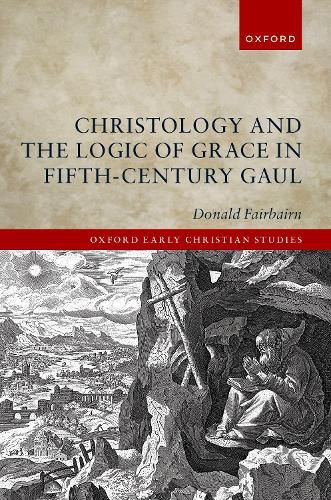Readings Newsletter
Become a Readings Member to make your shopping experience even easier.
Sign in or sign up for free!
You’re not far away from qualifying for FREE standard shipping within Australia
You’ve qualified for FREE standard shipping within Australia
The cart is loading…






The monastic writers in fifth-century southern Gaul have long been branded as 'Semi-Pelagians' because of their opposition to Augustine's teaching on predestination and grace. But an overlooked aspect of the grace-related discussions is the role that Christology plays in the articulation of grace, and in fact, the so-called 'Semi-Pelagians' all wrote on Christology in opposition to Nestorianism, as well as writing on grace. Their thinking was sparked at least as much by their opposition to Nestorius as it was by their disagreements with Augustine. This book examines the relation between Christology and grace in the later writings of Augustine, in Leporius both before and after his correction, and in the Gallic writers John Cassian, Vincent of Lerins, Prosper of Aquitaine, and Faustus of Riez. It argues that the Gallic writers hold to a Christology very similar to that of Augustine, a Christology of divine descent in which the incarnate Word is the subject of the human actions and experiences of Christ. Furthermore, the book argues that Augustine and the Gallic writers all affirm the priority of divine grace in salvation, but they differ in the way they establish that priority. Augustine and the Gallic writers reason between Christology and grace with a different logical sequence. Augustine starts with the incapacity of fallen humanity to save itself, then reasons to the predestination of the elect, and then understands the incarnation of the Word in terms of the particular effects on the elect. Predestination thus dominates his understanding of grace and soteriology. In contrast, the Gallic writers (including the later Prosper after he began to move away from Augustine) reason from human incapacity to the incarnation, thus understanding the descent of the Word as holding general effects for all humanity. Only then do they reason to the particular aspects of grace in Christian life. Predestination is thus less central to their thought and can be understood in a different way than in Augustine's later works.
$9.00 standard shipping within Australia
FREE standard shipping within Australia for orders over $100.00
Express & International shipping calculated at checkout
The monastic writers in fifth-century southern Gaul have long been branded as 'Semi-Pelagians' because of their opposition to Augustine's teaching on predestination and grace. But an overlooked aspect of the grace-related discussions is the role that Christology plays in the articulation of grace, and in fact, the so-called 'Semi-Pelagians' all wrote on Christology in opposition to Nestorianism, as well as writing on grace. Their thinking was sparked at least as much by their opposition to Nestorius as it was by their disagreements with Augustine. This book examines the relation between Christology and grace in the later writings of Augustine, in Leporius both before and after his correction, and in the Gallic writers John Cassian, Vincent of Lerins, Prosper of Aquitaine, and Faustus of Riez. It argues that the Gallic writers hold to a Christology very similar to that of Augustine, a Christology of divine descent in which the incarnate Word is the subject of the human actions and experiences of Christ. Furthermore, the book argues that Augustine and the Gallic writers all affirm the priority of divine grace in salvation, but they differ in the way they establish that priority. Augustine and the Gallic writers reason between Christology and grace with a different logical sequence. Augustine starts with the incapacity of fallen humanity to save itself, then reasons to the predestination of the elect, and then understands the incarnation of the Word in terms of the particular effects on the elect. Predestination thus dominates his understanding of grace and soteriology. In contrast, the Gallic writers (including the later Prosper after he began to move away from Augustine) reason from human incapacity to the incarnation, thus understanding the descent of the Word as holding general effects for all humanity. Only then do they reason to the particular aspects of grace in Christian life. Predestination is thus less central to their thought and can be understood in a different way than in Augustine's later works.